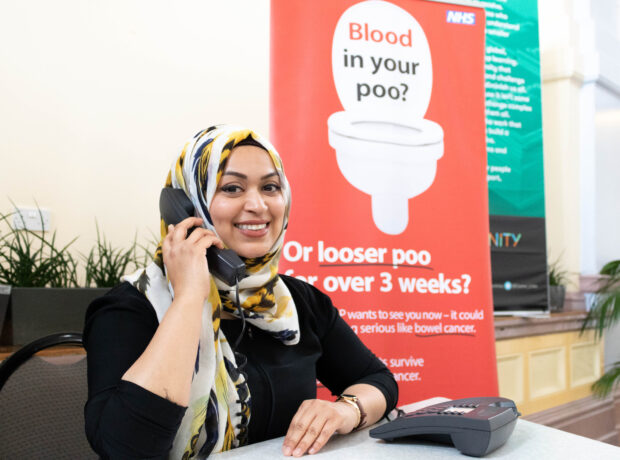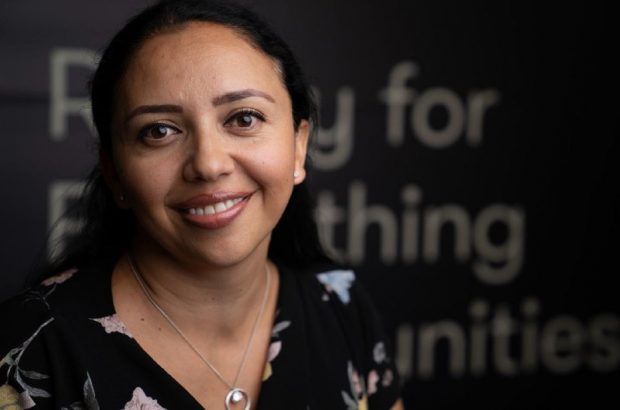
Nearly 865,000 people in England and Wales either cannot speak English well, or at all. When invitations or information related to health arrive through the post, many of these people need help understanding.
Even when people receive a letter in a language they can understand, they might still need help.
Having someone who they can relate to on the end of a phone can help make sure they are supported to make an informed choice about screening.
Sometimes though, the help London-based charity Community Links offers is as simple as explaining how they can get the number 241 bus from the end of their road directly to their appointment!
Tackling screening inequalities and sharing best practice is a priority for Public Health England (PHE) Screening.
In this article I'd like to share some information about work I've been involved in at Community Links and some of our successes in tackling inequalities.
Support with bowel and breast screening
Our talented and professional health facilitators (who speak 26 languages between them) are largely recruited from local communities. They reflect their local demographic and can communicate crucial messages to people effectively.
With my team, I run a series of programmes that work with health services to contact eligible people who haven't yet sent back bowel cancer screening home test kits or responded to breast screening invitations.
In 8 years, our health facilitators have called over 130,000 people about:
- the non-return of bowel cancer screening kits
- not taking up the offer of breast screening
More people attending breast screening appointments or returning bowel cancer screening kits means fewer late diagnoses and fewer deaths from cancer.
To give you an example of the impact of our work, in 2017, in the London borough of Newham:
- our efforts meant 9% of those screened (87 people in total) had bowel abnormalities detected early
- our breast cancer screening support programme resulted in a 5% to 10% increase in coverage
In 2015 to 2016, people were at least two and a half times more likely to attend screening when they were contacted by phone. Without the telephone outreach service they are likely to have remained non-responders with an increased chance of being diagnosed with cancer late.
Quite simply, our interventions save lives.
Power of a phone call
We've had lots of positive feedback about our efforts to reduce screening inequalities.
One woman told us how much she appreciated a call supporting her with her screening appointment. She said:
I am eternally grateful to the ladies working on the breast screening calling service. They reminded me of my first ever appointment for my mammogram and explained to me exactly what to expect. I felt encouraged and supported to attend.
The call proved extremely important in the end:
Without the support of the calling project, I would not have paid so much attention to my appointment. Luckily, thanks to screening, my breast cancer was diagnosed very early before any spread had occurred.
Looking forward

Cancer screening programmes are designed to detect cancer early. The earlier the condition is found, the better the chances of surviving it.
I'm proud to help raise awareness of screening in our local black, Asian, and minority ethnic (BAME) communities and help people make an informed choice.
My team and I work with a range of stakeholders, including clinical commissioning groups (CCGs), public health teams and services to do this.
We are busy delivering these programmes across 16 London boroughs and we have many more initiatives in the pipeline. My ambition is to provide our services in every London borough to reduce the number of people who die from cancer every year. I also want to develop our reach nationally without ever detaching ourselves from the communities we serve.
Please get in touch with Community Links if you'd like to find out more about our work.
Screening inequalities
As many of you will know, last year PHE published its screening inequalities strategy. Part of PHE's approach is to share local learning and experience from across the country to continue reducing these inequalities.
PHE Screening blogs
PHE Screening blogs provide up to date news from all NHS screening programmes. You can register to receive updates direct to your inbox, so there’s no need to keep checking for new blogs. If you have any questions about this blog article, or about population screening in England, please contact the PHE screening helpdesk.
3 comments
Comment by Irene Stratton posted on
Interestingly in one programme's report on ethnicity and uptake of diabetic eye screening the white Caucasian people had lower uptake than some of the BAME groups.
Comment by Agnes posted on
The link for "Community Links" does not appear to work
Comment by Andrew Anderson posted on
Dear Agnes
You're absolutely right, something had gone wrong with the link. This should be working fine now.
Many thanks for bringing this to our attention.
Best wishes